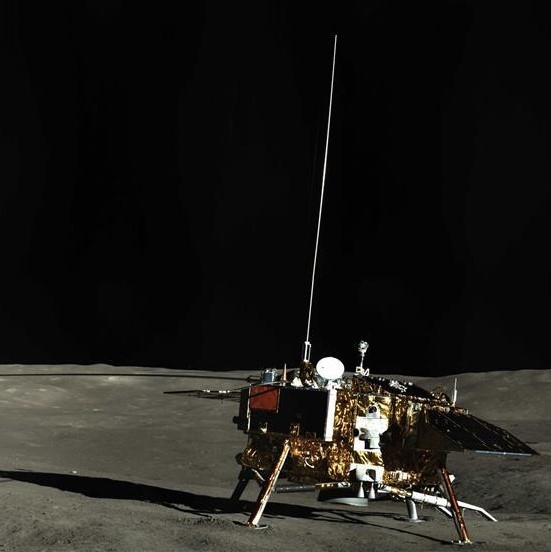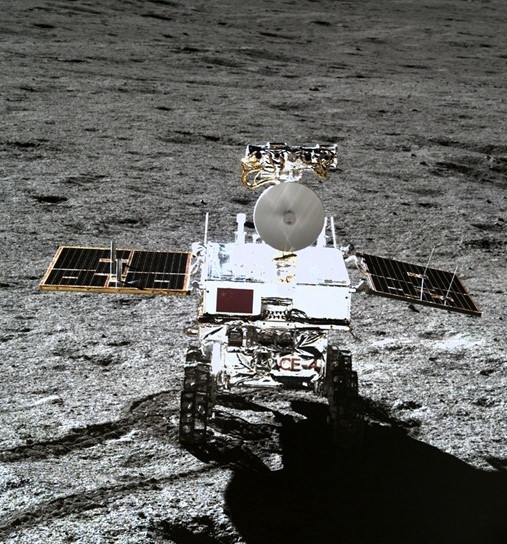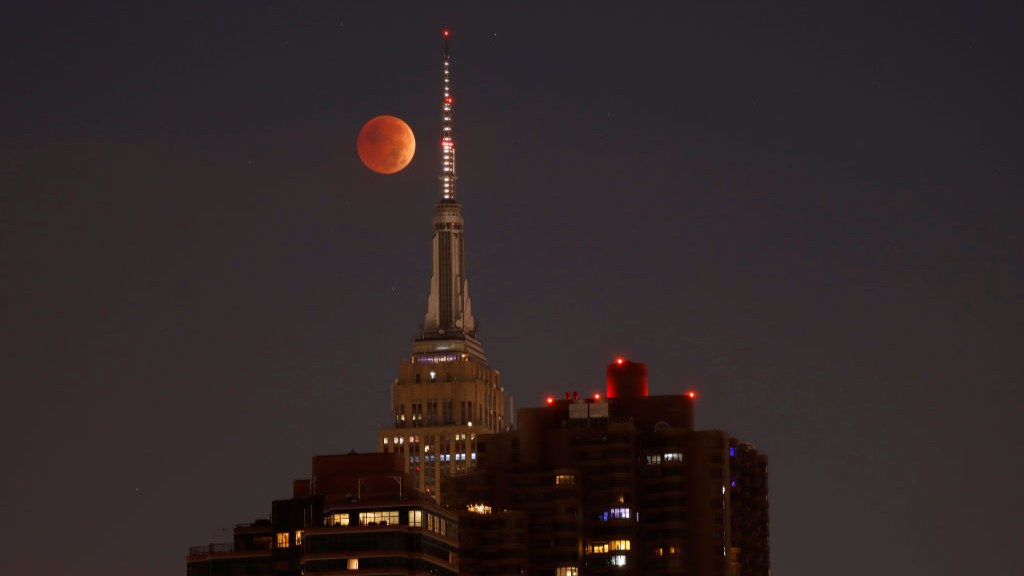
China's Rover on the Far Side of the Moon Is Heading for New Lunar Territory

"Over the past 60 years, we've made a lot of achievements," Wu said, "but there is still a large distance from the world space powers. We must speed up our pace."
"At the end of this year, we are going to launch the Chang'e 5 probe," Wu said in the CCTV interview. "It will take samples on the moon surface and return to the Earth. China will become the third country that is capable of such a task after the United States and Russia. Next year, we will launch a Mars probe, which will orbit around Mars, land on it and probe it."
Rover nap, sleep session
Yutu 2 and the Chang'e 4 lander launched together on Dec. 8, 2018, and on Jan. 2 made the first-ever soft landing on the lunar far side. The mission touched down on the floor of Von Karman Crater, inside the huge South Pole-Aitken Basin.
The lunar rover had a nap in January, started its second sleep on Feb. 11, and reawakened on Feb. 28. "Currently, it is in normal condition," said Wu.
Each lunar night is 14 Earth days long. During these dark stretches, temperatures on the moon's surface can drop to minus 310 degrees Fahrenheit (minus 190 degrees Celsius), "a temperature that all components, parts and electronic components cannot stand," Wu explained. "So, we let it sleep for a while, ensuring it to spend the night safely."
Related: China's Chang'e 4 Moon Farside Mission in Pictures
According to a CGTN story, Wu added that "the road condition is not good with potholes and obstacles on it. But please rest assured we will ensure its safety."
Breaking space news, the latest updates on rocket launches, skywatching events and more!
Wu took part in opening the second session of the 13th National Committee of the Chinese People's Political Consultative Conference (CPPCC) on Sunday (March 3).
Leonard David is author of the forthcoming book, "Moon Rush: The New Space Race" to be published by National Geographic in May 2019. A longtime writer for Space.com, David has been reporting on the space industry for more than five decades. Follow us @Spacedotcom or Facebook. This version of the story published on Space.com.

Leonard David is an award-winning space journalist who has been reporting on space activities for more than 50 years. Currently writing as Space.com's Space Insider Columnist among his other projects, Leonard has authored numerous books on space exploration, Mars missions and more, with his latest being "Moon Rush: The New Space Race" published in 2019 by National Geographic. He also wrote "Mars: Our Future on the Red Planet" released in 2016 by National Geographic. Leonard has served as a correspondent for SpaceNews, Scientific American and Aerospace America for the AIAA. He has received many awards, including the first Ordway Award for Sustained Excellence in Spaceflight History in 2015 at the AAS Wernher von Braun Memorial Symposium. You can find out Leonard's latest project at his website and on Twitter.


